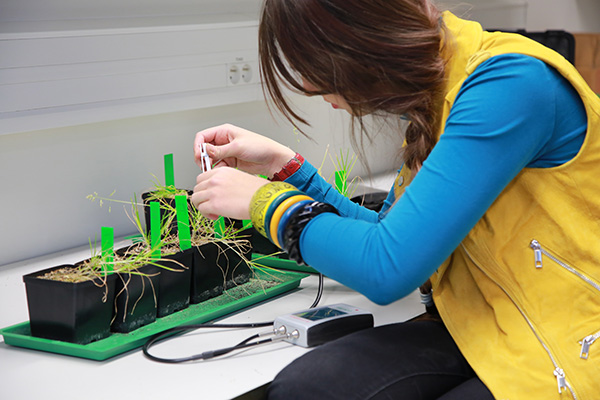A new publication by researchers from the Institute of Environmental Biology in Ecology

19 09 2025
Agnieszka Rudak, Halina Galera, and Maciej Wódkiewicz from the Institute of Environmental Biology have published an article in Ecology entitled Is Poa annua a Skin-Changer? Annual–Perennial Life History Shift Enables the Species to Conquer Antarctica. This is another publication from this research team addressing the invasion of annual bluegrass (Poa annua L.) in Antarctica and population studies of this species.
Annual bluegrass is the most common invasive plant in polar and subpolar terrestrial ecosystems of the Southern Hemisphere. Although it is generally considered an annual species, it is known that at least some individuals can live longer than one growing season. Under particularly harsh environmental conditions, an extended life cycle may play a crucial role in the invasion success of P. annua in Antarctica and Subantarctica.
The aim of the study was to determine whether the ability to extend the life cycle is restricted to certain populations of annual bluegrass or whether it is a trait characteristic of the entire species. Individuals from eight populations originating from four continents were examined. A common garden experiment was conducted, recreating the climatic conditions of Antarctica. The plants were cultivated for two Antarctic growing seasons separated by a period simulating polar winter.
The experiment demonstrated that P. annua is capable of extending its life cycle regardless of population origin. In all studied populations, overwintering plants developed adventitious roots at the lower stem nodes. This indicates that the basal parts of the shoots serve as the species’ overwintering organs.
The results show that under harsh Antarctic conditions, P. annua can adopt at least a biennial life cycle. This trait occurs at the species level and underlies its high invasive potential. This poses a serious threat to areas currently lying beyond the horizontal and vertical range limits of P. annua, especially under ongoing global climate change.